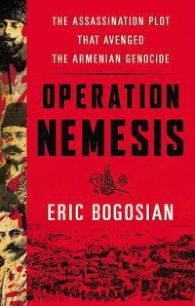The Andromeda Strain - Crichton Michael (серия книг txt) 📗
This was necessary because past experience in other laboratories working in so-called axenic, or germ-free, atmospheres indicated that contamination occurred in 15 per cent of cases. The reasons were usually structural- a seal burst, a glove tore, a seam split- but the contamination occurred, nonetheless.
At Wildfire, they were prepared for that eventuality. But if it did not happen, and the odds were it would not, then they could work safely here for an indefinite period. They could spend a month, even a year, working on the organism. There was no problem, no problem at all.
Hall walked through the corridor, looking at the atomic-detonator substations. He was trying to memorize their positions. There were five on the floor, positioned at intervals along the central corridor. Each was the same: small silver boxes no larger than a cigarette packet. Each had a lock for the key, a green light that was burning, and a dark-red light.
Burton had explained the mechanism earlier. "There are sensors in all the duct systems and in all the labs. They monitor the air in the rooms by a variety of chemical, electronic, and straight bioassay devices. The bioassay is just a mouse whose heartbeat is being monitored. If anything goes wrong with the sensors, the lab automatically seals off. If the whole floor is contaminated, it will seal off, and the atomic device will cut in. When that happens, the green light will go out, and the red light will begin to blink. That signals the start of the three-minute interval. Unless you lock in your key, the bomb will go off at the end of three minutes."
"And I have to do it myself?"
Burton nodded. "The key is steel. It is conductive. The lock has a system which measures the capacitance of the person holding the key. It responds to general body size, particularly weight, and also the salt content of sweat. It's quite specific, actually, for you."
"So I'm really the only one?"
"You really are. And you only have one key. But there's a complicating problem. The blueprints weren't followed exactly; we only discovered the error after the lab was finished and the device was installed. But there is an error: we are short three detonator substations. There are only five, instead of eight."
"Meaning?"
"Meaning that if the floor starts to contaminate, you must rush to locate yourself at a substation. Otherwise there is a chance you could be sealed off in a sector without a substation. And then, in the event of a malfunction of the bacteriologic sensors, a false positive malfunction, the laboratory could be destroyed needlessly."
"That seems a rather serious error in planning."
"It turns out," Burton said, "that three new substations were going to be added next month. But that won't help us now. Just keep the problem in mind, and everything'll be all right."
Leavitt awoke quickly, rolling out of bed and starting to dress. He was excited: he had just had an idea. A fascinating thing, wild, crazy, but fascinating as hell.
It had come from his dream.
He had been dreaming of a house, and then of a city- a huge, complex, interconnecting city around the house. A man lived in the house, with his family; the man lived and worked and commuted within the city, moving about, acting, reacting.
And then, in the dream, the city was suddenly eliminated, leaving only the house. How different things were then! A single house, standing alone, without the things it needed- water, plumbing, electricity, streets. And a family, cut off from the supermarkets, schools, drugstores. And the husband, whose work was in the city, interrelated to others in the city, suddenly stranded.
The house became a different organism altogether. And from that to the Wildfire organism was but a single step, a single leap of the imagination…
He would have to discuss it with Stone. Stone would laugh, as usual- Stone always laughed- but he would also pay attention. Leavitt knew that, in a sense, he operated as the idea man for the team. The man who would always provide the most improbable, mind-stretching theories.
Well, Stone would at least be interested.
He glanced at the clock. 2200 hours. Getting on toward midnight. He hurried to dress.
He took out a new paper suit and slipped his feet in. The paper was cool against his bare flesh.
And then suddenly it was warm. A strange sensation. He finished dressing, stood, and zipped up the one-piece suit. As he left, he looked once again at the clock.
2210.
Oh, geez, he thought.
It had happened again. And this time, for ten minutes. What had gone on? He couldn't remember. But it was ten minutes gone, disappeared, while he had dressed- an action that shouldn't have taken more than thirty seconds.
He sat down again on the bed, trying to remember, but he could not.
Ten minutes gone.
It was terrifying. Because it was happening again, though he had hoped it would not. It hadn't happened for months, but now, with the excitement, the odd hours, the break in his normal hospital schedule, it was starting once more.
For a moment, he considered telling the others, then shook his head. He'd be all right. It wouldn't happen again. He was going to be just fine.
He stood. He had been on his way to see Stone, to talk to Stone about something. Something important and exciting.
He paused.
He couldn't remember.
The idea, the image, the excitement was gone. Vanished, erased from his mind.
He knew then that he should tell Stone, admit the whole thing. But he knew what Stone would say and do if he found out. And he knew what it would mean to his future, to the rest of his life, once the Wildfire Project was finished. Everything would change, if people knew. He couldn't ever be normal again- he would have to quit his job, do other things, make endless adjustments. He couldn't even drive a car.
No, he thought. He would not say anything. And he would be all right: as long as he didn't look at blinking lights.
Jeremy Stone was tired, but knew he was not ready for sleep. He paced up and down the corridors of the laboratory, thinking about the birds at Piedmont. He ran over everything they had done: how they had seen the birds, how they had gassed them with chlorazine, and how the birds had died. He went over it in his mind, again and again.
Because he was missing something. And that something was bothering him.
At the time, while he had been inside Piedmont itself, it had bothered him. Then he had forgotten, but his nagging doubts had been revived at the noon conference, while Hall was discussing the patients.
Something Hall had said, some fact he had mentioned, was related, in some off way, to the birds. But what was it? What was the exact thought, the precise words, that had triggered the association?
Stone shook his head. He simply couldn't dig it out. The clues, the connection, the keys were all there, but he couldn't bring them to the surface.
He pressed his hands to his head, squeezing against the bones, and he damned his brain for being so stubborn.
Like many intelligent men, Stone took a rather suspicious attitude toward his own brain, which he saw as a precise and skilled but temperamental machine. He was never surprised when the machine failed to perform, though he feared those moments, and hated them. In his blackest hours, Stone doubted the utility of all thought, and all intelligence. There were times when he envied the laboratory rats he worked with; their brains were so simple. Certainly they did not have the intelligence to destroy themselves; that was a peculiar invention of man.
He often argued that human intelligence was more trouble than it was worth. It was more destructive than creative, more confusing than revealing, more discouraging than satisfying, more spiteful than charitable.
There were times when he saw man, with his giant brain, as equivalent to the dinosaurs. Every schoolboy knew that dinosaurs had outgrown themselves, had become too large and ponderous to be viable. No one ever thought to consider whether the human brain, the most complex structure in the known universe, making fantastic demands on the human body in terms of nourishment and blood, was not analogous. Perhaps the human brain had become a kind of dinosaur for man and perhaps, in the end, would prove his downfall.
Already, the brain consumed one quarter of the body's blood supply. A fourth of all blood pumped from the heart went to the brain, an organ accounting for only a small percentage of body mass. If brains grew larger, and better, then perhaps they would consume more- perhaps so much that, like an infection, they would overrun their hosts and kill the bodies that transported them.
Or perhaps, in their infinite cleverness, they would find a way to destroy themselves and each other. There were times when, as he sat at State Department or Defense Department meetings, and looked around the table, he saw nothing more than a dozen gray, convoluted brains sitting on the table. No flesh and blood, no hands, no eyes, no fingers. No mouths, no sex organs- all these were superfluous.
Just brains. Sitting around, trying to decide how to outwit other brains, at other conference tables.
Idiotic.
He shook his head, thinking that he was becoming like Leavitt, conjuring up wild and improbable schemes.
Yet, there was a sort of logical consequence to Stone's ideas. If you really feared and hated your brain, you would attempt to destroy it. Destroy your own, and destroy others.
"I'm tired," he said aloud, and looked at the wall clock. It was 2340 hours- almost time for the midnight conference.
21. The Midnight Conference
THEY MET AGAIN, IN THE SAME ROOM, IN THE SAME way. Stone glanced at the others and saw they were tired; no one, including himself, was getting enough sleep.
"We're going at this too hard," he said. "We don't need to work around the clock, and we shouldn't do so. Tired men will make mistakes, mistakes in thinking and mistakes in action. We'll start to drop things, to screw things up, to work sloppily. And we'll make wrong assumptions, draw incorrect inferences. That mustn't happen."
The team agreed to get at least six hours sleep in h c twenty-four-hour period. That seemed reasonable, Since there was no problem on the surface; the infection at Piedmont had been halted by the atomic bomb.



